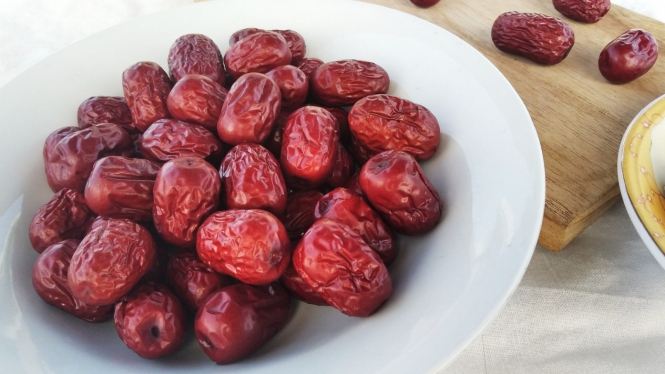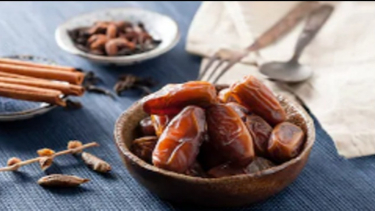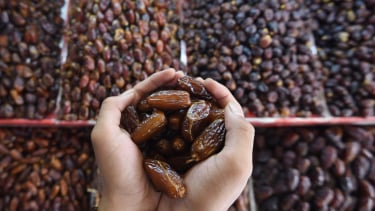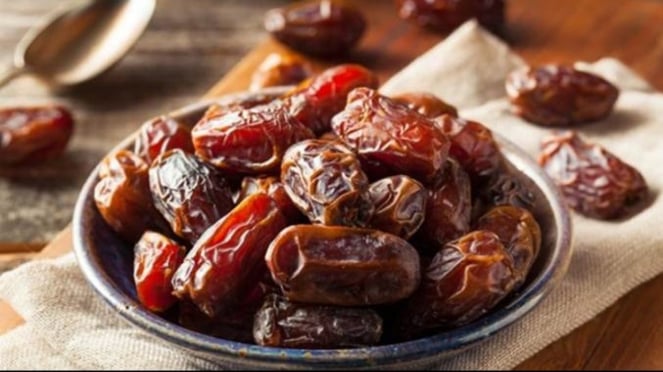6 Unusual Facts about Dates, Healthy Food in Ramadhan
- Pixabay/ Vesiraja
VIVA –Dates are the fruit of the date palm tree, scientifically known as Phoenix dactylifera. This fruit is believed to have originated in the Middle East and has been a staple food in the region for thousands of years. Dates are often consumed during Ramadhan, a month of fasting.
Muslims around the world break their fast at sunset during Ramadhan with dates, following the tradition of Prophet Muhammad. Dates are a good source of natural sugars, fiber, and energy, which can help restore the body's energy levels after a long day of fasting.
In addition, dates have religious significance in Islam, as they are believed to have been one of the Prophet Muhammad's favorite foods and are mentioned in the Quran. Therefore, dates are a common sight at the iftar table, the evening meal that breaks the fast during Ramadhan.
Well, here are some unusual facts about dates, healthy food in Ramadhan
1. The origin of the dates
Ilustrasi buah kurma (Foto/Pixabay)
- U-Report
The cultivation of dates can be traced back to eastern Arabia in 6000 BC, and the Sumerian regions between 2600 BC and 1800 BC. In fact, dates have been mentioned in several ancient texts.
Date palm groves in the valleys of the Tigris and Euphrates are mentioned in the Epic of Gilgamesh (the great poem from ancient Mesopotamia regarded as the earliest surviving great work of literature). They are also mentioned in the Akkadian-inscribed Code of Hammurabi (a Babylonian code of law dating back to 1754 BC) which noted that the date palm was worth twice as much as the ground it grew from.
2. Dates variety
Buah kurma
- U-Report
Dates come in a number of species which range in taste, size, and color. The most popular are the following.
Medjool: One the most commercially produced variety of dates, the Medjool is the largest and sweetest tasting date. They are dark with thin skin. Khadrawy: These dates are incredibly sweet, and sticky and are amber or yellow. Halawy: Known for their small size, Halawy dates are sweet with a caramel-like flavor and thick, wrinkled skin.
Barhi: With a much thinner skin than other dates, Barhi dates are round with a soft, chewy texture and have a butterscotch taste. Zahidi: These are more of a rarity among the date families. The Zahidi date is crunchy and often used in date sugar. Deglet Noor: Known as the queen of all dates, Deglet Noor has a soft texture and is known for its translucent light color and honey-like taste.
3. Dates are very nutritious
Kurma Ajwa, buah kurma kesukaan Nabi Muhammad
- U-Report
Dates are rich in iron, potassium, calcium, and magnesium, and they are a good source of fibre. They are also rich in calories, making them a great energy source. Sweet in taste, dates are also a good alternative to refined sugars. Turning to nutritious, natural options, like fruits, rather than ultra-processed foods is one factor that can help reverse the trend of obesity.
Increasing the availability of fresh fruits and vegetables can help people make healthier choices. Options like dried dates that can keep for many months are a good example of a quick nutritious alternative. Their long shelf-life also helps minimize food losses.
4. Dates have many other health benefits
Since generations ago, it is well known that this fruit can improve better brain function and health and promote natural labor. It can also act as a natural sweetener and slow down the risk of osteoporosis due to the fruit’s high mineral content.
5. Dates according to several religions
Kurma, buah yang menjadi idola di bulan Ramadan.
- ANTARA FOTO/Akbar Nugroho Gumay
Dates and the date palm also have great significance in the three Abrahamic religions Christianity, Judaism, and Islam. In Judaism, the date palm is regarded to be the tree of knowledge and life. In Christianity, the date palm became a symbol of martyrdom, as martyrs were depicted holding a palm frond as a symbol that represented the victory of the soul over the body.
In Islam, the date palm represents a place of rest and hospitality, as the presence of palm groves around an oasis was symbolic of the fact that water was a gift from Allah. The palm also appears in the Qur’an as being the image of paradise. Muslims also break their fast during Ramadan with a date.
6. Dates are part of a long heritage and culture
The date palm has been cultivated in the Middle East and North Africa for a long ago. Because of the nutrients and calories that dates provided, these fruits meant food and nutrition security for populations living in the desert and other drylands.
Food and agriculture around the world form an important part of cultures and identities. To celebrate and preserve this heritage, FAO designed the Globally Important Agricultural Heritage Systems (GIAHS) program to award sites around the world that have maintained traditions of growing and harvesting foods that are unique and well-adapted to local landscapes and climates.
As one good GIAHS example, the Siwa Oasis in Egypt precisely demonstrates farmers’ ingenuity to adapt agriculture to difficult conditions. Here, cultivated date palms are inter-cropped with fruits, vegetables, fodder crops, and occasionally cereals in a three-story canopy structure with date palms occupying the highest level.
This multi-layered system creates a microclimate that allows other crops to grow under palm trees, preserving precious water.































